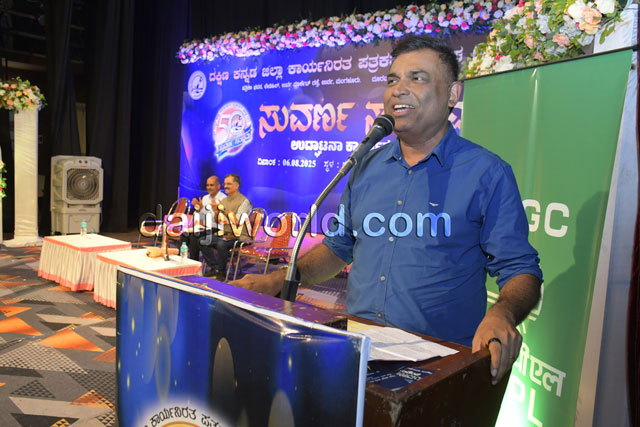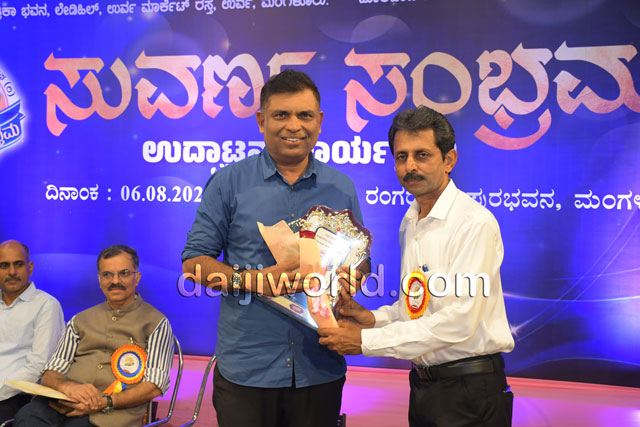Daijiworld Media Network – Mangaluru
Mangaluru, Aug 6: Walter Nandalike, managing director of Daijiworld Media Network Pvt Ltd, highlighted a growing concern in the media industry, stating, “The biggest challenge we face today is that professional, passionate journalists are forced to compete with immature individuals claiming to be journalists.”
He was speaking at a panel discussion on the topic "Media: Present and Future", held as part of the golden jubilee celebrations of the Dakshina Kannada Working Journalists’ Union at Town Hall on Wednesday, August 6.


Nandalike noted, “Before the rise of social media, the spread of fake news was relatively limited due to fear and accountability. But with the emergence of platforms like YouTube and Facebook around 2007, we lost control. Earlier, those entering journalism were either truly passionate or qualified. Today, anyone with a mobile phone believes they are a journalist. They shoot videos, edit, write, comment, and even read the news themselves. This is our reality.”
He added, “The emphasis today is no longer on quality, but on metrics — likes, shares, and views. It’s all a numbers game. Media houses are targeting five generations: Baby Boomers (age 60 and above), Generation X (age 45–60), Generation Y (29–44 age group), Generation Z (ages 13–28), whose priority is mobile-based, short-form content like WhatsApp videos and three-minute reels. They lack the patience for long-form news. The next is Gen Alpha (0–13 years), who may never use a pen or pencil to write but will consume everything on screens.”
Nandalike urged students considering a career in media to understand this shift. “If you are entering this field, you must learn how to engage all five generations and educate them effectively. Keep this in mind.”
He also pointed out several pressing issues the media faces today: “Fake news, competition between professional or qualified journalists and immature journalists, declining revenue, loss of quality for number game, and the noise and disruption in media especially evident during 9 pm news shows, which have turned into pure noise.”
Concluding his address, he stressed the importance of adapting to technology. “If you don’t understand or learn artificial intelligence (AI), you risk becoming an illiterate journalist in the future. AI can truly help you – learn it.”
Ravindra Shetty, resident editor, Vijaya Karnataka, also shared his thoughts, saying, “This is the era of viral news, which poses a major challenge. There is an urgent need for legal regulation of social media at the government level, and it must be used positively for the benefit of society and the profession.”
Ravi Hegde, chief editor of Kannada Prabha and Suvarna News was also present.